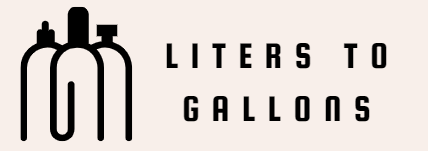Formula to convert 80 gallons to liters is to multiply 80 by 3.75841178 (this is the value for 1 gallon to liter).
Convert 80 Gallons to Liters results
80 x 3.78541178 = 302.8329424
80 gal = 302.83 l
It’s simple, the answer for 80 gallons is three hundred two point eight three liters.
Everyone needs to know how you turn 80 gallons into liters
To understand how to convert 80 gallons to other units of measurement, it is important to explore the mathematical basis of these conversions and to understand their applicability in various practical contexts.
We will analyze together how to equate 80 gallons to liters and what are the uses of this conversion in various industries and everyday applications.
Calculation method
To convert 80 gallons to liters, we will use the international standards for the US gallon and the British imperial gallon.
American Gallon
1 US gallon = 3.78541 liters
80×3.78541=302.8328 liters
The British Imperial Gallon
1 British imperial gallon = 4.54609 liters
80×4.54609=363.6872 liters
Uses of conversion
Knowledge and application of conversions between measurement units are essential in education and in daily practice.
In the academic environment, these concepts help to develop mathematical calculation skills and promote the understanding of the basic principles of measurements.
In everyday life, knowledge of conversions facilitates the efficient management of resources and the correct planning of activities, such as shopping for longer periods.
Various approaches
These conversions are particularly relevant in various industries and fields of activity.
For example, in the automotive industry it is important for calculating fuel consumption and planning transport routes. In agriculture, for the assessment of irrigation needs and the efficient application of fertilizers.
On the other hand, in the food industry, for compliance with the production and distribution standards of food in precise and standardized quantities.
The ability to convert 80 gallons into liters is an essential skill in a world where accurate communication and efficient management of resources are the key to success in any field.
Learning these conversions not only increases technical competence, but also contributes to the development of critical thinking and problem-solving skills in various contexts and in continuous evolution.
